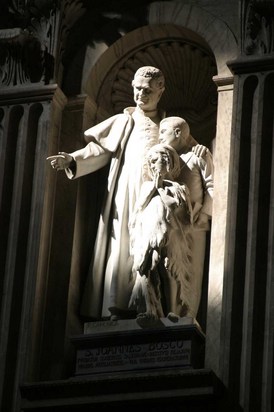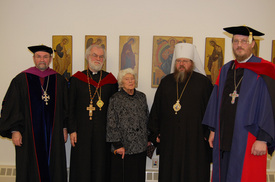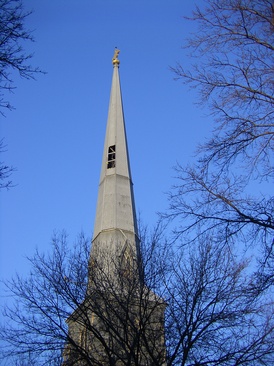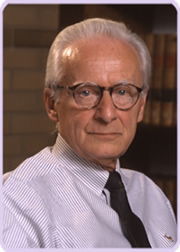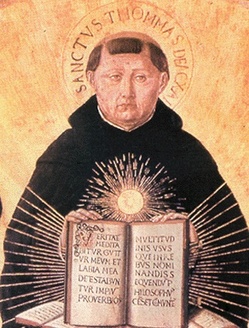The kingdom of heaven is
like a mustard seed which a man took and sowed in his field. It is the smallest
of all the seeds but when it has grown it is the biggest shrub of all and
becomes a tree so that the birds of the air come and shelter in its branches.
Because today is a Sunday, the Church does not observe the feast of Saint John Bosco, known also as Don Bosco. However, in the Salesian family, Don Bosco’s it is a feast day. My encounters with members of the Salesian family have been few so I’ve poked around their website to learn a little more of the spirit of Don Bosco. The
paragraphs are excerpts of a May 10, 1884 letter by Saint John Bosco,
considered by some to be the “Magna Carta” of Salesian Education. It
is included as an appendix to the Constitutions of the Salesian Society, and
given to members of the Salesian Family. In the USA the Salesians are not as
known as in other parts of the world. Here, their educational system was
perceived to be competing with the Jesuits, and Salesians could not compete.
The Jesuits have about 47 high schools in all the major cities. Be that as it
may, Saint John Bosco provides for us an insight into effective pastoral
ministry. The Salesians of Don Bosco are influential in various sectors of the
Church, primarily in education and with the youth. The reasons for this fact are evident in the letter below. If you are interested in the Salesian priests and sisters, visit their website.
From the letter of Don Bosco:
By
a friendly informal relationship with the boys, especially in recreation. You
cannot have love without this familiarity, and where this is not evident there
can be no confidence. If you want to be loved, you must make it clear that you
love. Jesus Christ made himself little with the little ones and bore our
weaknesses. He is our master in the matter of the friendly approach. The
teacher who is seen only in the classroom is a teacher and nothing more; but if
he joins in the pupils’ recreation he becomes their brother. If someone is only
seen preaching from the pulpit it will be said that he is doing no more and no
less than his duty, whereas if he says a good word in recreation it is heard as
the word of one who loves.
How many conversions have been brought about by a
few words whispered in the ear of a youngster while he is playing. One who
knows he is loved loves in return, and one who loves can obtain anything,
especially from the young. This confidence creates an electric current between
youngsters and their superiors. Hearts are opened, needs and weaknesses made
known. This love enables superiors to put up with the weariness, the annoyance,
the ingratitude, the troubles that youngsters cause. Jesus Christ did not crush
the bruised reed nor quench the smouldering flax. He is your model. Then you
will no longer see anyone working for his own glory; you will no longer see
anyone punishing out of wounded self-love; you will not see anyone neglecting
the work of supervision through jealousy of another’s popularity; you won’t
hear people running others down so as to be looked up to by the boys: those who
exclude all other superiors and earn for themselves nothing but contempt and
hypocritical flattery; people who let their hearts be stolen by one individual
and neglect all the other boys to cultivate that particular one. No one will
neglect his strict duty of supervision for the sake of his own ease and
comfort; no one will fail through human respect to reprimand those who need
reprimanding. If we have this true love, we shall not seek anything other than
the glory of God and the good of souls. When this love languishes, things no
longer go well. Why do people want to replace love with cold rules? Why do the
superiors move away from the observance of the rules Don Bosco has given them?
Why the replacement little by little of loving and watchful prevention by a
system which consists in framing laws? Such laws either have to be sustained
through punishment and so create hatred and cause unhappiness or, if they are
not enforced, cause the superiors to be despised and bring about serious
disorders. This is sure to happen if there is no friendly relationship. So if
you want the Oratory to return to the happiness of old, then bring back the old
system: let the superior be all things to all, always ready to listen to any
boy’s complaints or doubts, always alert to keep a paternal eye on their
conduct, all heart to seek the spiritual and temporal good of those Divine
Providence has entrusted to him. Then hearts will no longer be closed and
deadly subterfuge will no longer hold sway. The superiors should be unbending
only in the case of immoral conduct. It is better to run the risk of expelling
someone who is innocent than to keep someone who causes others to sin.
Assistants should make it a strict duty in conscience to refer to the superiors
whatever they know to be an offence against God.
